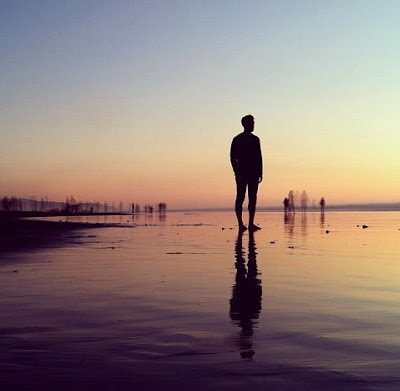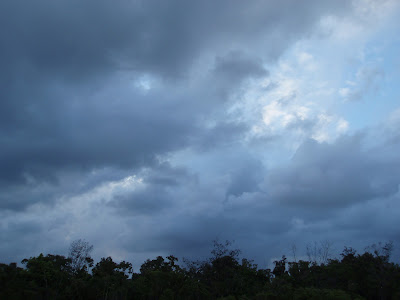A follow-up to "What I Have Come to Believe - Part 1" and "Part 2: A Quest for Patterns and Control":
Fighting Cliches'
The words we use to talk about cancer can influence how we
think about the disease - and how we think about the people who have been touched by it. Those who survive are often called
"winners" and are said to be
"victorious." Those who have not survived their cancer are called "angels" and are said to be
"in a better place." Whenever I
hear those descriptive terms used in that context, though,
People talk about fighting cancer ... but the term "fighting" implies that there are winners and losers, just as surrendering sounds like giving up. Certainly it isn't being implied that those unlucky enough to die after being diagnosed with a more aggressive type of cancer or an unfortunate side-effect like infection are losers who have given up.
My dad was tough; he challenged himself on a daily basis in the physical realm though countless miles of running and biking on the road and grueling workouts, and he worked his whole life to better himself in any way that he could. At no point in his life was he a loser or a quitter, and he sure as hell never surrendered, even though he was not able to survive the cancer that took his life. From Day One of his diagnosis, he said he was ready to go back to work, and he continued to say that up until a few days before he died. That is the opposite of surrendering, if you ask me.
Advice that I hear being given out a lot in reference to a person who is dealing with serious illness or another extreme trial in life is "Stay strong." I'm not even sure what that means; don't cry ... don't refuse treatment ... don't die??? And the phrase that is used a lot with intent to encourage a person with cancer - "Never, Ever Give Up", or "NEGU," as it is sometimes abbreviated - makes me wonder if those using that slogan have considered that doing so implies giving up has occurred when one cannot survive despite everyone's best efforts. When treatment has failed and the disease is taking over, the pressure from hearing cliches like "NEGU" must be almost as unbearable as the disease can be.
Instead of "Never, Ever Give Up," what cancer and grief have taught me is to "Never say never." More than anything else in my life, the experiences I have had since my dad got sick have shown me that there is simply no way to understand some things without having gone through them. Lots of things that I thought I knew have fallen by the wayside over the past 2.5 years; now I either have knowledge of a different set of facts - or a different perspective - or just the understanding that there are many things I don't know at this point.
Maybe it's ok to use the term fighting when we're talking about cancer, as long as there is an awareness of the fact that sometimes FIGHTING can be doing something other than getting an aggressive treatment. Treatment and all the things that go along with it are an individual decision, one that can be made
exponentially harder because of the time factor, plus the shock, entering into end-stage decisions. I think a lot
of people with aggressive cancers opt to try an aggressive treatment as they
attempt to figure out what their goals are (their Revised Bucket Lists) - it's
like that is the Default when we are faced with the initial decision, and then,
if that proves unsuccessful or unsatisfactory, they go to a more traditional
treatment or to less harsh remedies or even no treatment at all. Fighting can be seen as doing any number of things - or sometimes by doing nothing at all, depending on the situation and on one's perspective.
With an aggressive cancer like GBM, the survival statistics are horrible
to look at, but people tend to hang onto the knowledge that nothing is for sure; believing that a loved one will beat the
odds is not unreasonable, and in many cases Hope is one of the few things that can be controlled. Those dealing with aggressive cancer may consider treatments that
have less severe side effects than chemo; they may have an "if-then" list or just an idea
of "if" this happens, "then" another option will be
considered or pursued. I know all too well that when the treatment options and their pros and cons have all been laid out, what to do can be a tough, tough, thing to hammer out, but here's the bottom line: sometimes saving a life is not the same thing as extending
it.
 |
| From "http://ozbraintumour.info/" |












.jpg)


